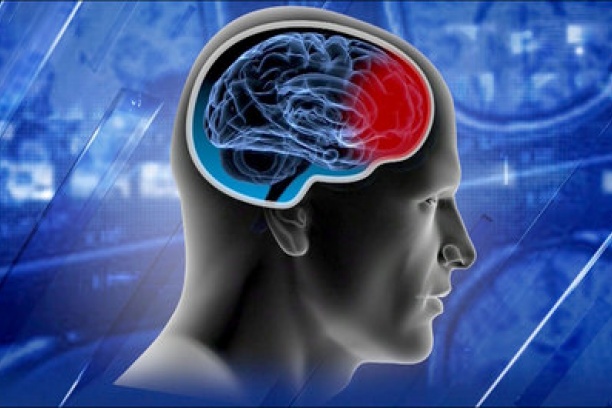Concussion is typically thought of as simply a hindrance to doing “normal” stuff, whether that be schoolwork, or getting back out onto the field, as most concussions happen through athletic means. But are the ramifications of a concussion just to feel a little dizzy and disoriented for a bit? Research into postcussed individuals suggests otherwise, as post concussion depression has been found to be a prevalent after-effect.
When people generally think of concussion, their first thought is typically not in relation to other mental disorders such as depression, but it should be. One study found that at least 35% of individuals that experience a traumatic brain injury (TBI) develop depression. This means that at least a third of people who get a concussion  develop depressive symptoms afterward, which is quite a dramatic number. Another fact that was found is equally concerning: one study found that after only a mild traumatic brain injury, there was a 15% chance that the person developed major depression. This is the lightest and least serious type of brain injury (which you can get simply by hitting your head slightly too hard) and the worst, most serious type of depression, occurring in more than 1 in 7 people who experience a concussion. This is significant not only because of the depression part, but because this points to concussion as being more than purely “an annoyance”. In fact, the total prevalence across all severities of TBIs for major depression is 14-29%. In other words, up to a third of people who experience a concussion develop the clinically-worst type of depression.
develop depressive symptoms afterward, which is quite a dramatic number. Another fact that was found is equally concerning: one study found that after only a mild traumatic brain injury, there was a 15% chance that the person developed major depression. This is the lightest and least serious type of brain injury (which you can get simply by hitting your head slightly too hard) and the worst, most serious type of depression, occurring in more than 1 in 7 people who experience a concussion. This is significant not only because of the depression part, but because this points to concussion as being more than purely “an annoyance”. In fact, the total prevalence across all severities of TBIs for major depression is 14-29%. In other words, up to a third of people who experience a concussion develop the clinically-worst type of depression.
This prevalence for depression isn’t universal however, there are certain people who develop more depressive symptoms than others post-concussion. Some risk factors are: being an older age when starting your first sport, having a history of substance abuse, and lower levels of education. Something that was found is that the severity of the TBI didn’t consistently lead to higher rates of depression, but losing consciousness was related to risk for developing major depression among mTBI patients. Some more demographic information reveals that ethnicities other than white experience greater post-concussion symptoms, and IQ has a negative correlation with such symptoms as well. These results are more speculative as to why they would be the case, but this highlights the need for greater concussion protocol and faculty in lower-socioeconomic areas, which unfortunately, by definition, have less access to such resources.
Figuring out why these results are the case has the ability to help numerous concussion victims recover with more vigor and not have to deal with bouts of depression while trying to recover. Neurologically speaking, one culprit could be the “differential patterns of calcium flux” that can occur postconcussion, which could be leading to less brain-derived neurotrophic factor (BDNF), leading to depression. BDNF is essential for cell proliferation and so without adequate amounts of it, cell levels and signalling may be messed up enough to contribute to startling equilibrium and causing depressive symptoms. The article also states that BDNF is directly associated with NMDA receptor alteration, which concussion causes as well. Another factor that would seemingly lead to higher depressive symptoms post-concussion would be increased GABA levels and signalling, as that has been found to increase related to depression. This however, is not the case with concussion, as GABA levels have been observed to fall in post-concussed individuals.
With the rates of depressive symptoms among concussed individuals being more than 1 in 3 people, more research should be done to figure out some of the mechanisms for bringing this number down. Preventing concussions in the first place would be the best option, but preventing post-concussion depression is also an important step in making things better for everyone who experiences this sort of thing, especially athletes. To loop back to my normal point, concussion is more than just an annoyance to be blown off as a headache, and more guidance should be brought into schools of all levels and education on the subject should continue so that everybody involved understands how to respond and properly help the individual heal.
